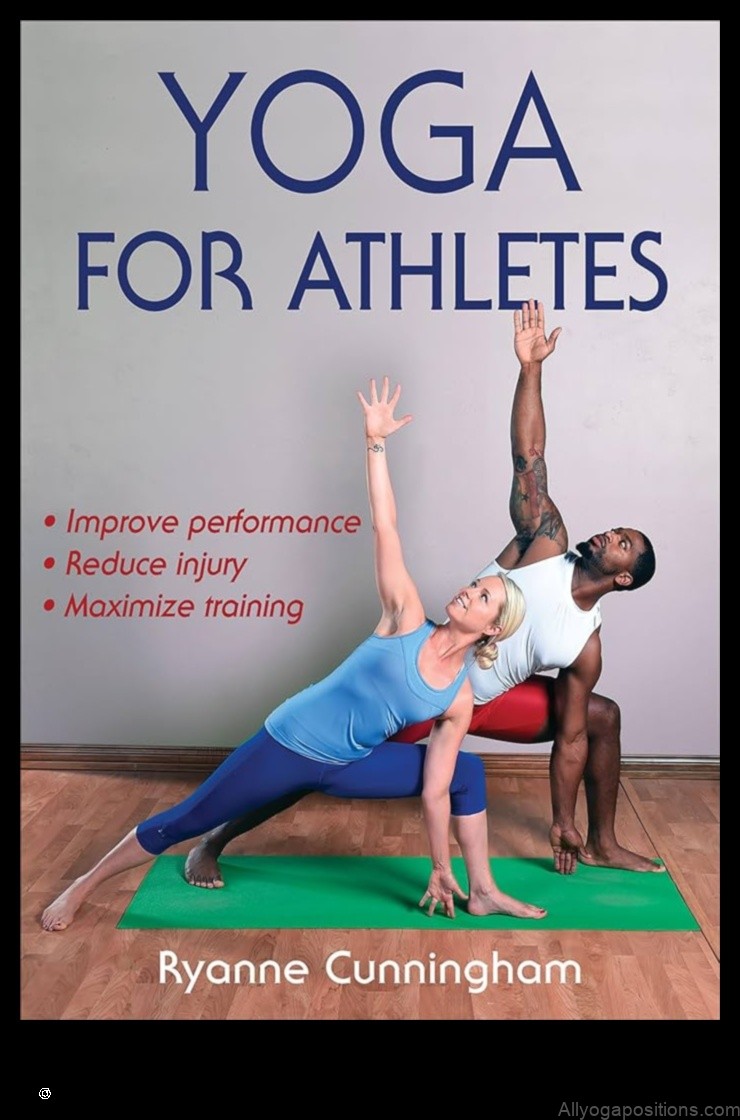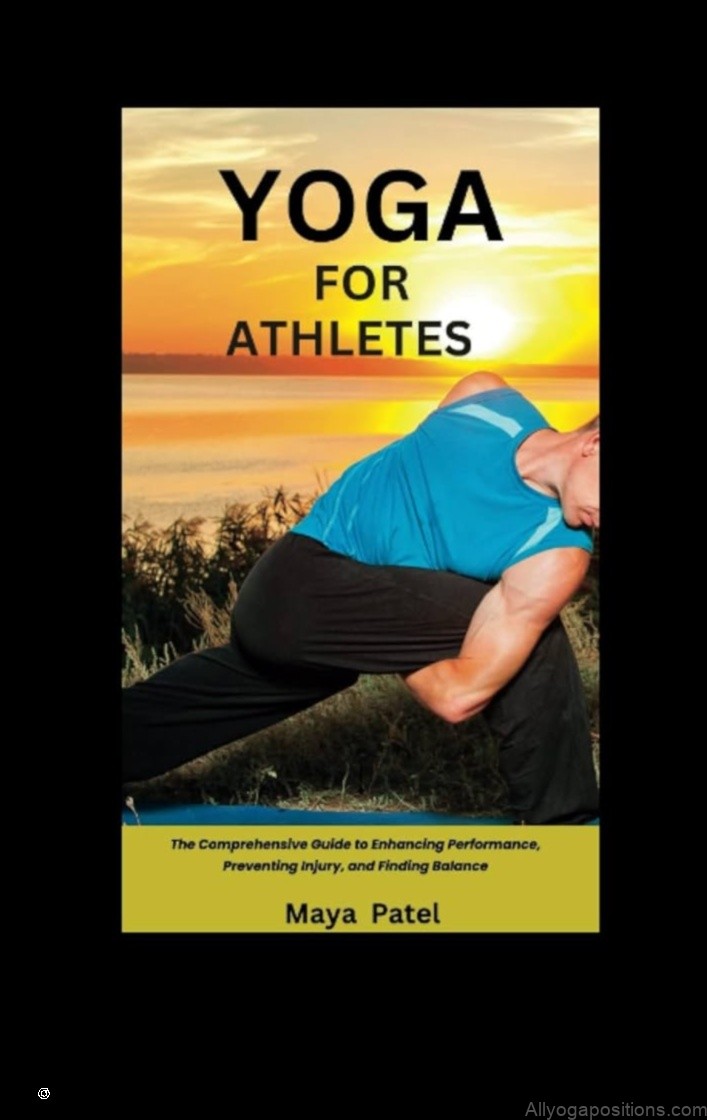
Yoga for Athletes: Enhancing Performance
Yoga is a mind and body practice that has been shown to have many benefits for athletes, including improved flexibility, strength, balance, and coordination. It can also help to reduce stress and anxiety, improve sleep, and boost recovery from injuries.
In this article, we will discuss the specific benefits of yoga for athletes, how to incorporate yoga into your training routine, and how to find a yoga class that is specifically designed for athletes.

Benefits of yoga for athletes
Yoga has been shown to have many benefits for athletes, including:
- Improved flexibility
- Increased strength
- Improved balance
- Improved coordination
- Reduced stress and anxiety
- Improved sleep
- Boosted recovery from injuries
These benefits can help athletes to perform better at their sport, reduce their risk of injury, and recover from injuries more quickly.
How to incorporate yoga into your training routine
The best way to incorporate yoga into your training routine is to start slowly and gradually increase the amount of time you practice each week. You may want to start by doing a few yoga poses before or after your workout, or by taking a short yoga class once or twice a week.
As you get more comfortable with yoga, you can start to increase the length of your practice and the intensity of the poses. You may also want to consider taking a more advanced yoga class or working with a yoga instructor.
Here are some tips for incorporating yoga into your training routine:
- Start slowly and gradually increase the amount of time you practice each week.
- Listen to your body and don’t push yourself too hard.
- Find a yoga class or instructor that is specifically designed for athletes.
- Make yoga a part of your overall fitness routine.

How to find a yoga class that is specifically designed for athletes
There are many different yoga classes available, so it’s important to find one that is specifically designed for athletes. When looking for a yoga class, consider the following factors:
- The instructor’s experience and qualifications.
- The type of yoga class.
- The length of the class.
- The cost of the class.
You may also want to ask your friends or family for recommendations for yoga classes that they have enjoyed.
FAQ
Here are some frequently asked questions about yoga for athletes:
- Can yoga help me improve my athletic performance?
- What are the benefits of yoga for athletes?
- How do I incorporate yoga into my training routine?
- How do I find a yoga class that is specifically designed for athletes?
For more information on yoga for athletes, you can visit the following websites:
| Feature | Answer |
|---|---|
| Yoga for athletes | Yoga can help athletes improve their flexibility, strength, balance, and coordination. It can also help reduce stress and improve mental focus. |
| Athletic performance | Yoga can help improve athletic performance by reducing injuries, improving recovery, and boosting mental focus. |
| Yoga poses for athletes | There are many yoga poses that are specifically designed for athletes. These poses can help improve flexibility, strength, balance, and coordination. |
| Yoga benefits for athletes | Yoga can provide a number of benefits for athletes, including improved flexibility, strength, balance, coordination, reduced stress, and improved mental focus. |
| Yoga injuries | Yoga can be safe for most athletes, but it is important to start slowly and listen to your body. If you experience any pain, stop practicing and see a doctor. |
II. Benefits of yoga for athletes
Yoga has been shown to have a number of benefits for athletes, including:
* Improved flexibility
* Increased strength
* Better balance
* Reduced pain
* Improved range of motion
* Increased relaxation
* Reduced stress
* Improved sleep
* Enhanced recovery
III. How yoga can improve athletic performance
Yoga can improve athletic performance in a number of ways.
Increased flexibility: Yoga can help to increase flexibility, which can improve range of motion and reduce the risk of injury.
Strength: Yoga can help to build strength, which can improve performance in a variety of sports.
Balance: Yoga can help to improve balance, which can be important for athletes in sports that require agility and coordination.
Core strength: Yoga can help to strengthen the core muscles, which are important for stability and power.
Reduced stress: Yoga can help to reduce stress, which can improve focus and concentration.
Improved sleep: Yoga can help to improve sleep, which can help athletes to recover from workouts and perform at their best.
IV. Yoga poses for athletes
Yoga poses can help athletes improve their flexibility, strength, balance, and coordination. They can also help to reduce stress and anxiety, which can improve overall performance.
Here are some specific yoga poses that are beneficial for athletes:
* Standing poses, such as mountain pose, warrior pose, and tree pose, can help to improve balance and coordination.
* Seated poses, such as child’s pose, seated forward bend, and pigeon pose, can help to stretch the hamstrings, calves, and hips.
* Twisting poses, such as seated twist and revolved triangle pose, can help to improve flexibility and relieve back pain.
* Inversions, such as headstand and shoulder stand, can help to improve circulation and reduce stress.
It is important to listen to your body and avoid poses that cause pain. If you are new to yoga, it is best to start with gentle poses and gradually increase the difficulty as you progress.
Yoga can be a great way for athletes to improve their overall health and performance. By incorporating yoga into their training routine, athletes can reduce their risk of injury, improve their flexibility, strength, and balance, and reduce stress and anxiety.
V. Yoga breathing exercises for athletes
Yoga breathing exercises, also known as pranayama, can help athletes improve their performance in a number of ways.
* Increased oxygen intake: Deep breathing exercises can help athletes increase their oxygen intake, which can lead to improved endurance and performance.
* Reduced stress: Yoga breathing exercises can help athletes reduce stress, which can improve their focus and concentration.
* Improved flexibility: Yoga breathing exercises can help athletes improve their flexibility, which can help them perform better in their sport.
* Prevention of injuries: Yoga breathing exercises can help athletes prevent injuries by strengthening their core muscles and improving their balance.
* Improved recovery: Yoga breathing exercises can help athletes recover from workouts faster by reducing inflammation and promoting relaxation.
Yoga breathing exercises are a great way for athletes to improve their performance and overall well-being. They are simple to learn and can be practiced anywhere, making them a convenient addition to any athlete’s training routine.
VI. Yoga for injury prevention
Yoga can help to prevent injuries by improving flexibility, strength, and balance. It can also help to reduce stress and improve overall well-being, which can help to make athletes less likely to get injured.
Some specific yoga poses that can help to prevent injuries include:
- Downward-facing dog
- Child’s pose
- Bridge pose
- Warrior pose
- Cobra pose
Yoga can also be used to help rehabilitate injuries after they have occurred. Some specific yoga poses that can help with rehabilitation include:
- Pigeon pose
- Seated forward bend
- Prone hamstring stretch
- Quad stretch
- Calf stretch
If you are an athlete, it is important to incorporate yoga into your training routine to help prevent injuries and improve your overall well-being.
Yoga for recoveryYoga can be a helpful tool for recovery from injuries or surgeries. The gentle stretching and poses can help to improve flexibility and range of motion, and the breathing exercises can help to reduce stress and promote relaxation. Yoga can also help to improve sleep, which is essential for recovery.
If you are recovering from an injury, it is important to consult with your doctor before starting a yoga practice. Your doctor can help you to determine which poses are safe for you to do and how often you should practice.
Here are some specific ways that yoga can help with recovery:
- Improves flexibility and range of motion
- Reduces stress and promotes relaxation
- Improves sleep
- Helps to prevent re-injury
If you are an athlete who is recovering from an injury, yoga can be a helpful addition to your treatment plan. It can help you to heal faster and get back to your sport sooner.
Yoga for mental health
VIII. Yoga for mental health
Yoga has been shown to have a number of benefits for mental health, including reducing stress, improving mood, and boosting self-esteem.
One study found that yoga can help to reduce stress levels in people who are experiencing chronic pain.
Another study found that yoga can help to improve mood in people who are experiencing depression.
Yoga can also help to boost self-esteem. One study found that yoga can help to improve body image and self-esteem in people who are overweight or obese.
Yoga is a safe and effective way to improve mental health. It is a low-impact exercise that can be modified to meet the needs of people of all ages and abilities.
If you are interested in trying yoga to improve your mental health, talk to your doctor or a qualified yoga instructor.
IX. Yoga for overall well-being
Yoga can help improve overall well-being by reducing stress, improving mood, and increasing flexibility, strength, and balance.
Stress is a major factor that can contribute to athletic injuries and performance problems. Yoga can help to reduce stress by teaching relaxation techniques, such as deep breathing and meditation.
Yoga can also improve mood by boosting serotonin levels, which is a neurotransmitter that is associated with happiness and well-being.
In addition to reducing stress and improving mood, yoga can also improve flexibility, strength, and balance. These are all important qualities for athletes to have in order to perform at their best.
Overall, yoga can be a great way for athletes to improve their overall well-being and perform better on the field.
X. FAQ
Q: What are the benefits of yoga for athletes?
A: Yoga can help improve athletic performance in a number of ways, including:
- Increased flexibility
- Improved balance
- Reduced stress
- Improved sleep
- Reduced pain
Q: How can yoga help me improve my athletic performance?
A: Yoga can help you improve your athletic performance by:
- Teaching you how to control your breath
- Helping you to relax and recover from workouts
- Strengthening your core and stabilizing your joints
- Improving your flexibility
- Teaching you how to move more efficiently
Q: What are some of the risks of yoga for athletes?
A: There are some risks associated with yoga, including:
- Injury
- Overstretching
- Dehydration
- Heatstroke
Table of Contents
